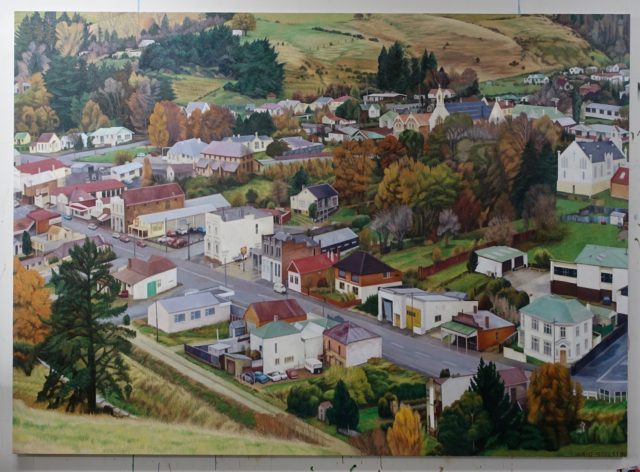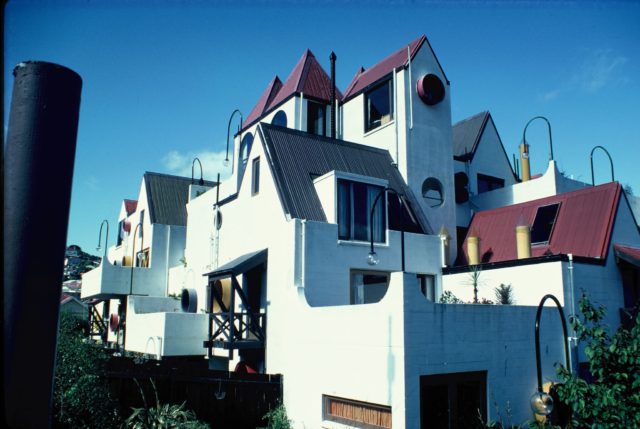NZIA IN:SITU Conference 2019
Every two years New Zealand architects have their conference.
I really look forward to it, and after weeks of anticipation, the two days of it were over in a flash.
I needee to comment on the last conference and I need to comment on the significance of this one.
It was the largest ever, with 1300 attendees. Morning , lunch and afternoon breaks were so socially intense that I actually looked forward to getting back to the auditorium to sit quietly and listen to the amazing line up of very special speakers.
Hearty congratulations for the Institute for organising such a stunning world-class lineup.
More Colour Please
I have written before about colour (or the lack of it) but recently there has been a public debate on the observation of the greying of our suburban roofs.
Apparently this ‘Stuff’ editorial even reached Australia.
A fellow in his 90s rang me last week to say the Wellington suburb he had lived in for many years was getting ‘greyer and greyer’. Ironic that he wasn’t talking about his hair, but the environment outside his home.
So why this sea of grey in our suburbs, some of which resemble groups of turtles grazing in a field?
The suburbs used to have coloured roofs of tasteful blues, red-browns, and greens as this nostalgic work by artist Dick Frizzell shows.
The Pertinence of Park Mews
I was sitting in my office one day minding my own business when the phone rang.
The caller introduced himself as comedian Billy Connolly’s New Zealand agent.
“Billy wants to meet you,” he said.
Apparently on the way in from the airport, he’d passed Park Mews in Hataitai and stated: “The architect clearly possesses a sense of humour.”
RIP David Mitchell
New Zealand architecture has lost a treasure this week with the death of David Mitchell.
There will be much written about David by people much closer to him than I, but I would like to talk about his personal influence on me.
Downsizing
In the 1940’s my parents built a classic brick and tile on ¼ acre in Hamilton suburbia and lived there for the rest of their lives. It was a nuclear family home of its time.
After us kids left home, three of the four bedrooms remained empty. The land remained, with its maintenance intensive lawn, and was never subdivided.
For the last fifty years or so in developed countries, it has been a demonstrable measure of success to own a large site upon which sits a large house. The house was a statement of social stratification as well as a place to live.
Nowadays we are much more likely to tailor our houses to fit our practical needs, rather than display affluence. This has inevitably led to better designed homes with footprints compatible with more affordable smaller sites. The ‘baby boomer’ generation of nuclear families has now splintered into many differing social groupings, and housing needs to reflect the current diversity. Read More




